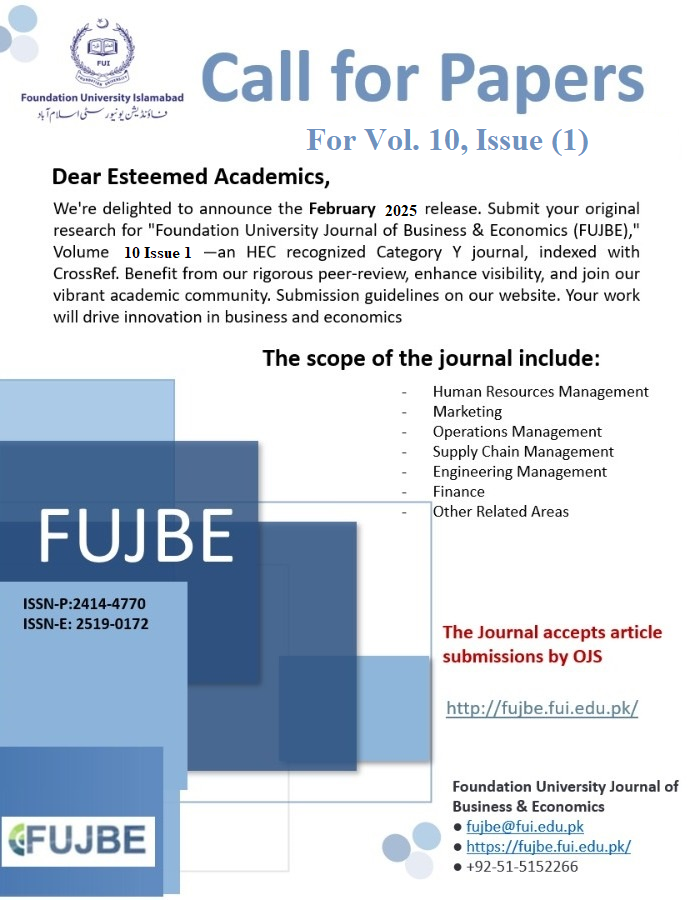Impact of Perceived Organizational Support on Employee Turnover Intention: The Mediating Role of Job Burnout
DOI:
https://doi.org/10.33897/fujbe.v9i2.940Keywords:
Perceived Organizational Support (POS), Job burnout, Turnover Intention.Abstract
This study is an investigation into the association between employee turnover intention and perceived
organizational support of employeea as well as the mediating effect of job burnout. Job burnout has received
exceptional attention in business research because it has several negative consequences on employee
performance. Although employees from all fields of work get effected but burnout is a critical phenomenon for
nursing community. Besides existence of plethora of research related to burnout, limited studies have discussed
its role as a mediator between perceived organizational support and the turnover intentions. Current study
conducted a cross-sectional analysis of the data to analyse the phenomenon quantitatively. Sample of study
contains 212 nurses employed at private hospitals of Pakistan. A questionnaire given out by the researcher was
used to gather data in a formal setting. The regression analysis was performed to analyze a linear relationship
between the variables of study. Preacher and Hayes technique was used to investigate the mediation effect
between the variables (Hayes & Preacher, 2010). Results reported in the study, as supported by the theory,
demonstrated that perceived organizational support has statistically significant negative relationship with
turnover intention of employees (Galanis et al., 2024). Results also found that job burnout is negatively associated
with perceived organizational support and employee turnover intention and mediates the relationship between
perceived organizational support and turnover intention in employees.



